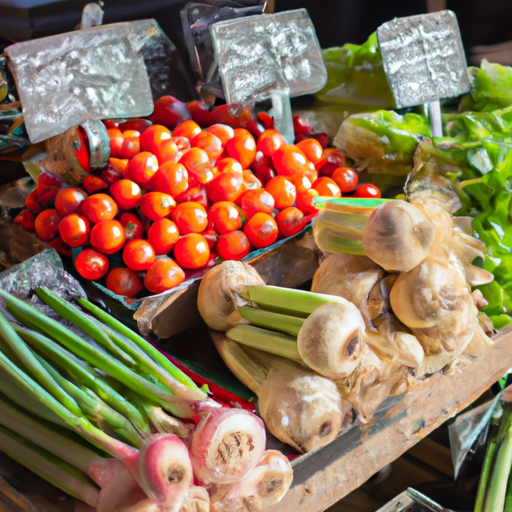Meat alternatives are gaining in popularity with vegans. Some are made to resemble meat whereas others do not. Therefore, a veggie burger is a meat alternative that looks like a beef patty to some extent. Are vegan meat alternatives safe to consume though? It is a difficult one to answer because there isn’t just a single meat substitute for vegans. To answer the question, we dig a little deeper and look at a few options for vegans, and whether they support good health or not.
The Most Common Vegan Meat Alternatives
There are numerous vegan meat alternatives at this point. Some are more affordable than others, which can be really relevant if you are on a budget.
Also, a few only have one or two brands producing vegan products to meet a small market need whereas others are widely marketed with an enormous variety to choose from.
Here are a few examples of vegan meat alternative sources:
Tofu – The standard for decades and popular in Asian cuisine too. Originating from soybeans, it is widely produced and available fresh, or in packets. There are smooth, silken tofu, marinated versions, and everything in between. Check out our grilled tofu recipe.
Seitan/wheat protein – Found in Asian foods, it is created from wheat flour dough that’s washed to get the starch out of it. With only the wheat gluten remaining, it has a meat-like consistency for slicing, using vegan sausages, and more.
Chickpeas – High in fiber, iron, calcium, and other nutrients, chickpeas are popular for vegans. Often seen in falafel and for dips like hummus.
Pea protein – This protein is newer and less common. It usually comes in a blend with spices, pea protein, and other vegetables too. It depends on the mix but usually, it is vegan.
Lupin protein – Less familiar, lupins are legumes that flourish in Continental Europe especially. Found in kebabs, cutlets, and other meaty products for vegans.
Soy protein –Accessible and affordable, soy is often seen as an alternative for mince or to easily shape such as with meatball alternatives. Adding spicy sauces or dips works well with soy due to its high absorption ability.
Tempeh –As a flexible fermented soybean, tempeh is rich in protein and high in fiber too. With a similar development process to cheese, it is used in Asian countries such as Indonesia, and elsewhere.
Green spelt grain – A type of wheat, the spelt grain gets harvested in a partially ripe state. The timing is crucial. Roasted next to seal in the flavors, it is rich in vitamins and minerals.
Oat flakes –These flakes are a mixture of zucchini, carrots, veggie broth, veggie proteins, some fats included, and oat dough that’s been fried. Delivering complex carbs, they space out the energy delivery to the body. A secondary option to oat flakes is pulled oats. Both types are useful for weight management too.
Black beans – Plentiful in fiber and protein, black beans are gaining in availability. They come in different hues with the darker ones containing more anthocyanins, an antioxidant.
As you can see there are a whole host of meat substitutes available to those living a vegan lifestyle or eating a vegan, or plant-based diet.
A lot of the list above are plant-based alternatives to meat – but what else do they contain? Let’s take a look.
What Else Do Vegan Meat Alternatives Contain?
Some vegan meat alternatives, and plant-based meat substitutes, are naturally higher in essentials needed for good human health.
For instance, oak flakes contain a good amount of iron and zinc to avoid being deficient in these. Some meat alternatives include antioxidants too. Green spelt usually has enough B vitamins to do some good.
Depending on the meat alternative, they may have other ingredients added. All vegans need to be aware of this and look at the ingredient list before making a purchase.
Oak flakes are again a good example here because it’s produced using a few vegetables such as zucchini and carrots, a blended broth, and oat dough.
Each commercial oak flake product will use proprietary ingredients, so they need to be reviewed to ensure they’re vegan.
Given that vegan meat is now made from 10s of sources – some of which we covered at the beginning of this article – care must be taken with what’s contained inside a packaged vegan product.
While it is likely that a vegan meat alternative is truly vegan in every way, it never hurts to trust… but verify.
Getting enough protein on a vegan diet can be difficult, and some of these vegan meat alternatives will offer some protein for the diet. Check out our article for more on protein and the vegan diet.
Are Vegan Meat Alternatives Safe?
As a meat alternative, these products are considered extremely safe because they’re from plant sources. As long as the plants weren’t contaminated, then food products from them should be safe.
It is certainly true that the carcinogens present in some animal meat aren’t present in veggie burgers and the like. This is something that the World Health Organization has pointed out in support of plant-based diets.
Whether you are eating a meat-based, plant-based, or vegan diet, you still need to ensure that it is a healthy diet.
Are Vegan Meat Alternatives Actually Healthy?
One of the things that came out of research in Australia was that some meat alternatives were higher in sodium than real meat. Sometimes, it was a small difference and other times it was larger.
Consumers can examine the sodium level in these meat alternatives pre-purchase to manage their salt intake.
Many plant-based, vegan-approved alternatives to real meat are both lower in calories and fat too. It’s worth noting that animal meat that’s been ground up or turned into sausages is substantially higher in fats and calories. However, for vegan burgers, the differences are admittedly minimal.
Vegans must necessarily pick and choose between their vegan meat alternatives to find what’s right for them.
Fortunately, for people looking to either manage their waistline or lose significant weight, a vegan diet can have a number of advantages.



